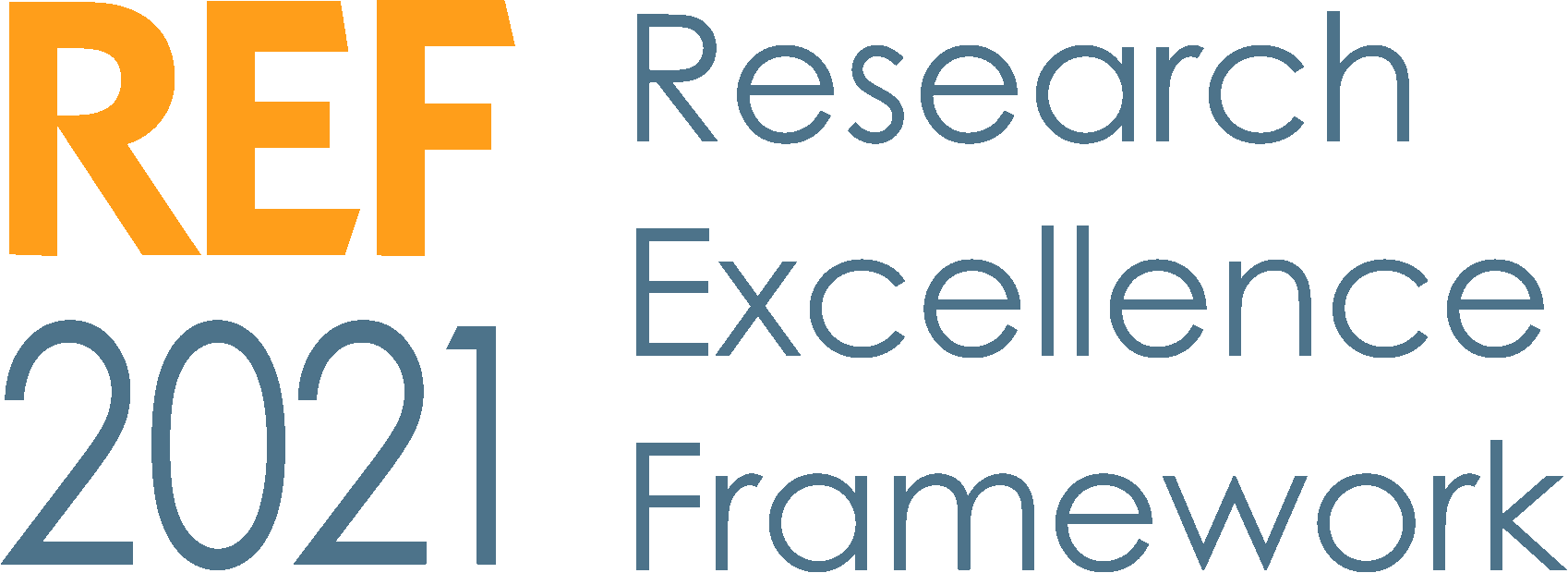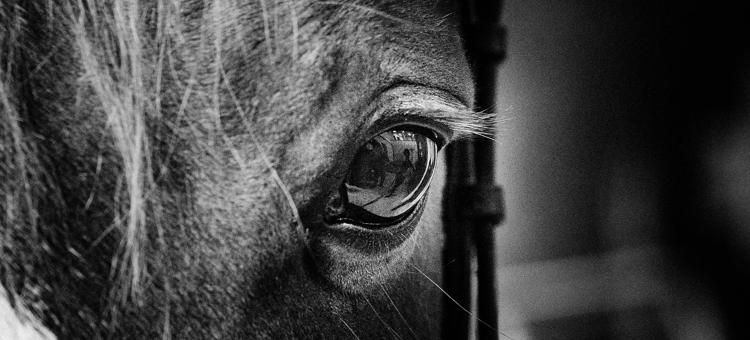Course information
We provide the ideal environment for your training, with specialist expertise in canine and equine veterinary physiotherapy, as well as health, welfare, behavior and performance.
You’ll benefit from access to real-world cases and technologies in our canine and equine therapy centres, as well as laboratories kitted out with the latest scientific equipment.
Modules cover a diverse range of animal physiotherapy topics, plus research skills and business management. The course includes work placements and guest lectures from veterinary practices and surgeons, as well as qualified ACPAT canine and equine physiotherapists.
The course is delivered on a part-time basis, via block delivery to help fit around work or other commitments.
Chartered Society of Physiotherapy-accredited
The course is accredited by the Chartered Society of Physiotherapy. On completion of your second year, you’ll be eligible to upgrade from a Category B to a Category A member of the Association of Chartered Physiotherapists in Animal Therapy (ACPAT) as well as the Register for Animal Musculoskeletal Practitioners (RAMP).
You’ll need to maintain your ACPAT membership for the duration of your animal physiotherapy practice in the UK. Please visit www.acpat.org for the latest information, including costs.
Academic
Applicants should have at least a 2:1 in BSc (hons) Physiotherapy, registered with the Health Care and Professions Council as well as the Chartered Society of Physiotherapy. By the time of enrolment, students need to be a category B member of ACPAT. Students with 2:2 and relevant experience will be considered on a case by case basis.
Non-academic
A minimum of one-year postgraduate experience of working as a human physiotherapist is desirable but not essential.
International
Applicants will be considered from outside the UK but must have achieved a BSc (hons) Physiotherapy and be a member of their country’s professional Physiotherapy body (association/society). In addition to the academic qualification an IELTS 7.0 or equivalent is required.
Please contact us for further information.
Work placements and experience
Work placements form an essential part of your qualification to help prepare you for professional practice. In total, you’ll undertake 200 hours in the workplace, some hours working as part of our campus businesses and others as with veterinary practices and qualified Association of Chartered Physiotherapists in Animal Therapy (ACPAT) practitioners. We’ll support you to find suitable placements, utilising our connections with accredited ACPAT providers.
Guest lecturers
Guest lecturers are selected to provide a wide range of expertise to support your learning and practice. ACPAT-qualified physiotherapists, specialists in equine and canine physiotherapy, provide invaluable insights into real-world cases. Veterinary surgeons co-lecture two of the professional practice modules – Understanding Veterinary Diagnostic and Physiotherapy Assessment/Veterinary Physiotherapy Rehabilitation.
Graduate destinations
Newly-qualified veterinary physiotherapists have been employed in veterinary/physiotherapy practices and set up their own businesses or undertaken self-employed roles within physiotherapy practices. Graduates often start their careers with the businesses with which they undertook their placements.
Some graduates enjoy academic study so much and decide to progress their learning and advance practice through a PhD.
- Veterinary physiotherapist
- PhD
We're committed to supporting you to fulfil your unique potential while you're here so that you can achieve your personal and professional goals.
Duration
The course is delivered on a part time basis and based around modular blocks of teaching to allow students to continue to work. There is approximately one, three or four 4 day teaching block every month between September and April with assessments in January and May. There are a variety of placement days between teaching blocks (four in semester 1, seven in semester 2 of the first year and 14 between December and May in the second year). The master’s third year postgraduate dissertation module consisting of a valuable piece of research tailored to your interests and career aspirations, can be completed on or off-site, on a part-time basis.
Your support network
You'll benefit from a strong support network from day one. This will range from your lecturers, supervisors and personal tutor to our specialist academic (Achievement and Success Centre), employability (Employability, Skills and Careers) and wellbeing teams.
Your learning experiences
You'll experience a range of teaching methods to strengthen your understanding of topics, including lectures, workshops and practical sessions.
Course information
Overview
We provide the ideal environment for your training, with specialist expertise in canine and equine veterinary physiotherapy, as well as health, welfare, behavior and performance.
You’ll benefit from access to real-world cases and technologies in our canine and equine therapy centres, as well as laboratories kitted out with the latest scientific equipment.
Modules cover a diverse range of animal physiotherapy topics, plus research skills and business management. The course includes work placements and guest lectures from veterinary practices and surgeons, as well as qualified ACPAT canine and equine physiotherapists.
The course is delivered on a part-time basis, via block delivery to help fit around work or other commitments.
Chartered Society of Physiotherapy-accredited
The course is accredited by the Chartered Society of Physiotherapy. On completion of your second year, you’ll be eligible to upgrade from a Category B to a Category A member of the Association of Chartered Physiotherapists in Animal Therapy (ACPAT) as well as the Register for Animal Musculoskeletal Practitioners (RAMP).
You’ll need to maintain your ACPAT membership for the duration of your animal physiotherapy practice in the UK. Please visit www.acpat.org for the latest information, including costs.
Entry requirements
Academic
Applicants should have at least a 2:1 in BSc (hons) Physiotherapy, registered with the Health Care and Professions Council as well as the Chartered Society of Physiotherapy. By the time of enrolment, students need to be a category B member of ACPAT. Students with 2:2 and relevant experience will be considered on a case by case basis.
Non-academic
A minimum of one-year postgraduate experience of working as a human physiotherapist is desirable but not essential.
International
Applicants will be considered from outside the UK but must have achieved a BSc (hons) Physiotherapy and be a member of their country’s professional Physiotherapy body (association/society). In addition to the academic qualification an IELTS 7.0 or equivalent is required.
Please contact us for further information.
Employability
Work placements and experience
Work placements form an essential part of your qualification to help prepare you for professional practice. In total, you’ll undertake 200 hours in the workplace, some hours working as part of our campus businesses and others as with veterinary practices and qualified Association of Chartered Physiotherapists in Animal Therapy (ACPAT) practitioners. We’ll support you to find suitable placements, utilising our connections with accredited ACPAT providers.
Guest lecturers
Guest lecturers are selected to provide a wide range of expertise to support your learning and practice. ACPAT-qualified physiotherapists, specialists in equine and canine physiotherapy, provide invaluable insights into real-world cases. Veterinary surgeons co-lecture two of the professional practice modules – Understanding Veterinary Diagnostic and Physiotherapy Assessment/Veterinary Physiotherapy Rehabilitation.
Graduate destinations
Newly-qualified veterinary physiotherapists have been employed in veterinary/physiotherapy practices and set up their own businesses or undertaken self-employed roles within physiotherapy practices. Graduates often start their careers with the businesses with which they undertook their placements.
Some graduates enjoy academic study so much and decide to progress their learning and advance practice through a PhD.
- Veterinary physiotherapist
- PhD
How you'll study
We're committed to supporting you to fulfil your unique potential while you're here so that you can achieve your personal and professional goals.
Duration
The course is delivered on a part time basis and based around modular blocks of teaching to allow students to continue to work. There is approximately one, three or four 4 day teaching block every month between September and April with assessments in January and May. There are a variety of placement days between teaching blocks (four in semester 1, seven in semester 2 of the first year and 14 between December and May in the second year). The master’s third year postgraduate dissertation module consisting of a valuable piece of research tailored to your interests and career aspirations, can be completed on or off-site, on a part-time basis.
Your support network
You'll benefit from a strong support network from day one. This will range from your lecturers, supervisors and personal tutor to our specialist academic (Achievement and Success Centre), employability (Employability, Skills and Careers) and wellbeing teams.
Your learning experiences
You'll experience a range of teaching methods to strengthen your understanding of topics, including lectures, workshops and practical sessions.
Qualifications and modules
This course is for those who want to qualify and practice as animal physiotherapists, registered with the sector’s chartered body, the Association of Chartered Physiotherapists in Animal Therapy (ACPAT).
Compulsory modules across the MSc and Postgraduate Diploma cover a broad range of topics, including preparing for clinical practice, Applied Anatomy, Physiotherapy and Biomechanics, veterinary diagnostics, the research process and business management. As an MSc student, you’ll undertake a significant piece of research on a topic of your choice in year three to enhance your own and wider industry practice.
By the end of your first year you’ll have a solid level of understanding of animal behaviour, comparative anatomy, biomechanics, physiology, pathology and physiotherapy assessment to confidently assess horses and dogs. Your clinical reasoning skills will allow you to develop a problem list and goals for treatment, and present cases based on this information.
The majority of your time on campus will be focused on practical sessions with horses and with dogs, but in both your first and second years, you’ll undertake placement days to cement your clinical skills. This will support you to undertake complex clinical reasoning and apply assessment and treatment strategies once qualified.
On completion of your postgraduate diploma or the second year of your MSc, you’ll be eligible to register with the Association of Chartered Physiotherapists in Animal Therapy, which means you can practice as a professional animal therapist.
However, we encourage you to progress into the third year to achieve the full MSc qualification, whilst undertaking a valuable piece of research tailored to your interests and career aspirations. This can focus on dogs, horses or humans. You can utilise our facilities or conduct your project in an external environment. Students often publish their research and present at industry conferences to enhance their professional reputation and networks.
This course is made up of compulsory modules only to ensure you develop the competences required of the Chartered Society of Physiotherapy.
Module credits
Upon successful completion of your modules you’ll gain academic credit that accumulates towards your award. The marks you gain may contribute towards your final qualification differential award (pass, merit or distinction).
The course is taught in English.
Review normal and abnormal behaviours, legislation, needs, and management of domestic animals. Includes placement work.
Understand the anatomy, biomechanics (structure and function) and physiology of a range of species.
Review the veterinary diagnosis and physiotherapy assessment of a range of animals. Includes placement days.
Understand the essential operations of a small business, including, organisational culture and marketing.
Use a range of physiotherapy techniques to treat and rehabilitate both large and small animals. Includes placement days.
Applied Research in Veterinary Practice
Discuss the range of methods and ethical considerations required in veterinary research as well as appraise evidence, and apply research knowledge to the clinical context.
Develop and undertake a research project of your choosing.
Qualifications and modules
MSc / Postgraduate Diploma
This course is for those who want to qualify and practice as animal physiotherapists, registered with the sector’s chartered body, the Association of Chartered Physiotherapists in Animal Therapy (ACPAT).
Compulsory modules across the MSc and Postgraduate Diploma cover a broad range of topics, including preparing for clinical practice, Applied Anatomy, Physiotherapy and Biomechanics, veterinary diagnostics, the research process and business management. As an MSc student, you’ll undertake a significant piece of research on a topic of your choice in year three to enhance your own and wider industry practice.
By the end of your first year you’ll have a solid level of understanding of animal behaviour, comparative anatomy, biomechanics, physiology, pathology and physiotherapy assessment to confidently assess horses and dogs. Your clinical reasoning skills will allow you to develop a problem list and goals for treatment, and present cases based on this information.
The majority of your time on campus will be focused on practical sessions with horses and with dogs, but in both your first and second years, you’ll undertake placement days to cement your clinical skills. This will support you to undertake complex clinical reasoning and apply assessment and treatment strategies once qualified.
On completion of your postgraduate diploma or the second year of your MSc, you’ll be eligible to register with the Association of Chartered Physiotherapists in Animal Therapy, which means you can practice as a professional animal therapist.
However, we encourage you to progress into the third year to achieve the full MSc qualification, whilst undertaking a valuable piece of research tailored to your interests and career aspirations. This can focus on dogs, horses or humans. You can utilise our facilities or conduct your project in an external environment. Students often publish their research and present at industry conferences to enhance their professional reputation and networks.
Modules
This course is made up of compulsory modules only to ensure you develop the competences required of the Chartered Society of Physiotherapy.
Module credits
Upon successful completion of your modules you’ll gain academic credit that accumulates towards your award. The marks you gain may contribute towards your final qualification differential award (pass, merit or distinction).
The course is taught in English.
Year one
Review normal and abnormal behaviours, legislation, needs, and management of domestic animals. Includes placement work.
Understand the anatomy, biomechanics (structure and function) and physiology of a range of species.
Review the veterinary diagnosis and physiotherapy assessment of a range of animals. Includes placement days.
Year two
Understand the essential operations of a small business, including, organisational culture and marketing.
Use a range of physiotherapy techniques to treat and rehabilitate both large and small animals. Includes placement days.
Applied Research in Veterinary Practice
Discuss the range of methods and ethical considerations required in veterinary research as well as appraise evidence, and apply research knowledge to the clinical context.
Year three (MSc only)
Develop and undertake a research project of your choosing.
The modules contain a mixture of scheduled learning – lectures, workshops and practical sessions – alongside independent learning. Students are expected to dedicate at least two to three hours of independent study per contact hour. Your course will also include work placement learning as part of some modules.
The course is taught in English.
| Contact learning | Placement learning | Independent learning | |
| MSc degree | 12% | 14% | 74% |
| Postgraduate Diploma | 17% | 21% | 62% |
Teaching contact time and method will vary depending on the module that you are studying.
You’ll be assessed through a mixture of written exams, practical exams and written assignments. Many of the modules will be marked based on a mixture of assessment types, whilst others will be based solely on one type of assessment. Written feedback will be given for all submitted assessments.
| Written exam | Practical exam | Coursework | |
| MSc degree | 8% | 45% | 47% |
| Postgraduate Diploma | 13% | 54% | 33% |
This part-time master’s degree is taught over three semesters. There is approximately one teaching block of three or four days each month between September and April, with placement days between teaching blocks and assessments in January and May.
The degree is based around modular blocks of teaching to allow you to study around other commitments, eg. working in human physiotherapy practice.
Please visit our student finance page for information on tuition fees and student loans, as well as non-repayable grants, bursaries and scholarships, eligible to different groups, to support with study costs.
Professional insurance
From the January of your first year, you’ll need Category B Association of Chartered Physiotherapists in Animal Therapy (ACPAT) student liability insurance. This can be arranged through Graybrook Insurance Broker Limited, who provide the Chartered Society of Physiotherapists (CSP) professional liability cover. This will be needed for the duration of your course.
ACPAT membership and RAMP registration
On completion of your second year, you’ll be eligible to upgrade from a Category B to a Category A member of The Association of Chartered Physiotherapists in Animal Therapy (ACPAT) as well as enter the Register for Animal Musculoskeletal Practitioners (RAMP). You’ll need to maintain your ACPAT membership for the duration of your animal physiotherapy practice in the UK. Please visit the relevant websites via the links below for further details.
Clothing and footwear (circa £100)
You’ll need to have appropriate clothing for the practical sessions involved in some modules, eg. clean, professional and practical clothing suitable for working with small animals and horses. You’ll also need appropriate footwear, such as sturdy boots or shoes, and a riding hat for equine practical sessions. Specific details will be available prior to enrolment.
Optional field trips
Field trips are generally included in the course fees. However, extra costs may be required for specific optional trips.
Work placement travel costs
Extra costs required for your work placement, for example, travel and accommodation, need to be funded by the student.
Accommodation and living costs
Please visit our student accommodation page for details.
Our Resource Library is where you'll find all the essential details about Hartpury University's courses. It includes Programme and Module Specifications, along with Course Information Sheets for every course. You can easily download a complete revision history for each of these, clearly showing the dates changes were made.
Course Information Sheets: These are PDF versions of the course webpages. They provide an overview of the course, what to expect during your studies, and the topics covered.
Programme Specifications: These are detailed, validated documents containing academic specifics for each programme. They include descriptions of the programme, its aims, learning outcomes, year and module structure, as well as teaching, learning, and assessment strategies.
Module Specifications: Each Programme consists of several Modules. Our Module Specifications outline the topics covered and the expected outcomes for students studying each Module.
It's a good idea to think about fees and funding around your course as early as you can. We can help you to understand and take control of your finances. Here’s everything you need to know at a glance.

Our specialist facilities match our specialist nature. Students benefit from access to some of the most advanced facilities in the world at an educational institution.


Top 3 UK University
We're a top 3 UK university for postgraduate teaching, and top 5 UK university for overall postgraduate satisfaction (PTES 2024).

World leading
Our research has been recognised as 'world-leading' and 'internationally excellent' (Research Excellence Framework 2021).
Get in touch
Important information
Every effort has been made to ensure the accuracy of our published course information, however our programmes are reviewed and developed regularly. Changes or cancellation of courses may be necessary to ensure alignment with emerging employment areas, to comply with accrediting body requirements, revisions to subject benchmark statements or as a result of student feedback. We reserve the right to make necessary changes and will notify all offer-holders of changes as and when they occur.













